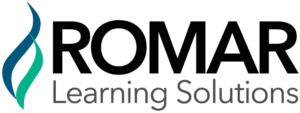
It’s not uncommon to confuse feedback or giving direction with coaching. Both of those might be components of coaching, but effective coaching needs to accomplish something developmental—it needs to achieve a coaching objective. Coaches also commonly provide “reactive feedback,” meaning the feedback always follows an observed behavior without any preliminary discussion. Or the coach assumes the team members know what they are supposed to be doing—catching them doing something wrong and commenting on it. The problem with this kind of coaching is that it’s punitive and unfocused. Establishing a good coaching objective and then focusing feedback and development on it provides focus and clarity for the team member.
Knowledge, Skill, or Behavior as an Objective
A good coaching objective begins with identifying something specific that will be the focus of the coaching. This objective needs to grow the team member to a higher performance level in the current role or prepare the team member for a new role in the organization. In coaching there are three categories from which you can identify a coaching objective:
- Knowledge – You can develop team members’ knowledge or help them move the knowledge they have to higher levels. Every job requires team members to have certain knowledge that is important to accomplishing the assigned tasks of the role. You can coach that knowledge base to a higher level.
- Skill – You can teach or improve a skill, which is an ability or a task that is important to a job. Through effective coaching, you can develop or improve the ability of team members to successfully complete important tasks.
- Behavior – You can help team members master or demonstrate key behaviors that are important to a role. This one is a little trickier than knowledge and skills. Behaviors define the way team members conduct themselves on the job. Ultimately, they have decided to do it, but as a coach, you can model and provide feedback to team members that will help them increase their ability and desire to demonstrate the right behaviors on the job.
Identify coaching objectives only from knowledge, skills, or behaviors. Other areas like attitude or emotions are outside the realm of coaching.
What Is a SMART Coaching Objective?
A useful tool for creating coaching objectives is the SMART acronym. You have probably heard of SMART before in terms goal setting. That same idea works for creating coaching objectives. SMART is a quality-control process for ensuring coaching objectives meet the following criteria:
- Specific – The coaching objective focuses on a specific knowledge, skill, or behavior
- Measurable – You and the team members have a way to determine whether they achieved the coaching objective
- Action-oriented – The coaching objective accomplishes something that will help the team members be more effective in their roles
- Realistic – The team members can reasonably achieve the coaching objective
- Time-bound – The coaching objective has a targeted time frame for achievement
Often coaching objectives are either too broad, not clearly stated, or unrealistic given the situation. SMART helps prevent that from happening.
Good SMART Coaching Objectives Are Simple
Following is an example of a SMART coaching objective:
By June 30, you will be able to plan a call on a customer that focuses on advancing the customer to the next stage of the buying process.
The coaching objective focuses on pre-call planning, and while what the team member needs to learn to master pre-call planning may be complex, the objective shouldn’t be. The simpler a coaching objective, the better. If the coaching objective is too complicated, the team member may become confused and may have difficulty focusing on achieving it.
A good tip for creating a coaching objective is to complete the sentence:
By the end of this coaching, you will be able to…
This tool will force you to create a simple and focused coaching objective. Then use SMART to quality check the objective.
Summary
Never start a coaching program with a team member without first establishing a good SMART coaching objective. First identify knowledge, a skill, or a behavior that will help the team member grow. Completing this step with the team member will help the person buy into the coaching process. Next, use the phrase above to identify something the team member will be able to do better after your coaching. Finally, test the coaching objective against SMART to ensure it’s a quality objective. A little time spent creating a SMART coaching objective can result in a big payoff.




